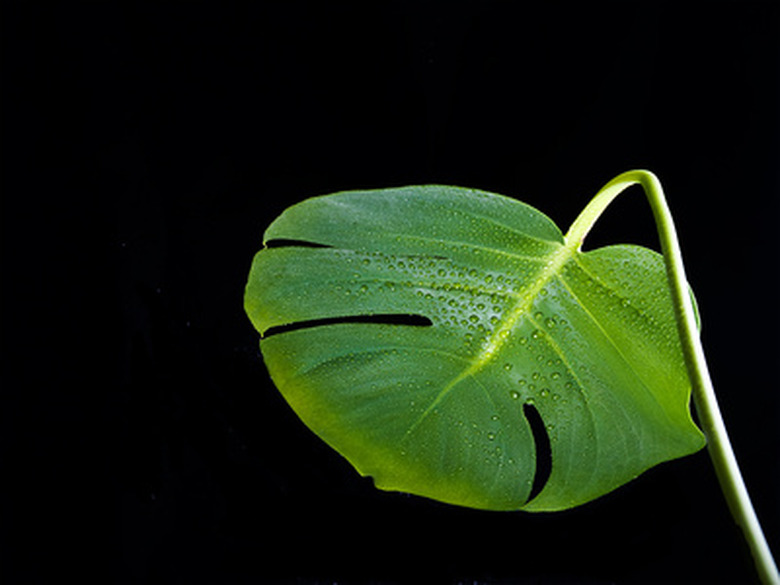Organic Cure For Black Flies On Plants
Black flies around houseplants indicate overly moist conditions. They thrive in soil organic matter and roots systems. Black fly gnats and larvae do extensive damage in commercial nursery operations but at home they are likely to be just plain annoying. A serious infestation can spread and cause leaf droop and death, so cultural controls are best applied as plants are placed indoors.
Description
Black flies on plants are also known as fungus gnats. They are small, fragile, dark gray or black and 1/8 inch in length. They are easily seen on the soil surface after the plant has been watered. Black flies are attracted to light and may swarm to window areas. Their larvae are dirty white color with shiny black heads. The larvae live in soil as they develop into mature flies.
- Black flies around houseplants indicate overly moist conditions.
- Black flies are attracted to light and may swarm to window areas.
Damage
Adult black flies do not damage plants but may be a nuisance in the house when they swarm to nearby windows. The larvae are also called fly maggots and they feed on plant roots and crowns. The first sign of a maggot infestation may be drooping leaves. Plants that are severely infected with black fly larvae have stunted growth, appear weak and drop their leaves.
Prevention
Prevention and early detection are the best protection against indoor insect plant infestations. Insects are often brought indoor in new potting materials. Watch new plants for signs of black fly or other insects and isolate the plant immediately. Black fly larvae damage roots and soft vegetation by eating the plant roots. They are difficult to control because they are under the soil where topically applied organic insecticides do not reach.
- Adult black flies do not damage plants but may be a nuisance in the house when they swarm to nearby windows.
- The first sign of a maggot infestation may be drooping leaves.
Cultural Controls
Cultural controls are the most effective organic managing technique for indoor plants with black fly problems. Screen windows and doors to prevent flies from entering. Black flies thrive in moist conditions. Good drainage in potted plants is essential and overwatering may encourage black flies; plants should not be left in standing water.
Biological Control
The University of California Davis' Integrated Pest Management program recommends Bacillus thuringiensis israelensis to control fungus gnats in outside areas. It is a naturally occurring, spore-forming bacterium produced commercially as a biological control. Its commercial description is BTi or Gnatrol. BTi provides temporary control and is toxic only to fly larvae. Repeat applications are commonly needed for long-term control.
- Cultural controls are the most effective organic managing technique for indoor plants with black fly problems.
- The University of California Davis' Integrated Pest Management program recommends Bacillus thuringiensis israelensis to control fungus gnats in outside areas.
